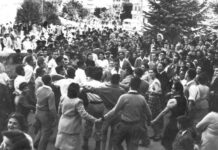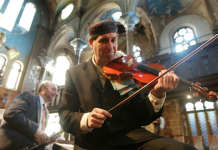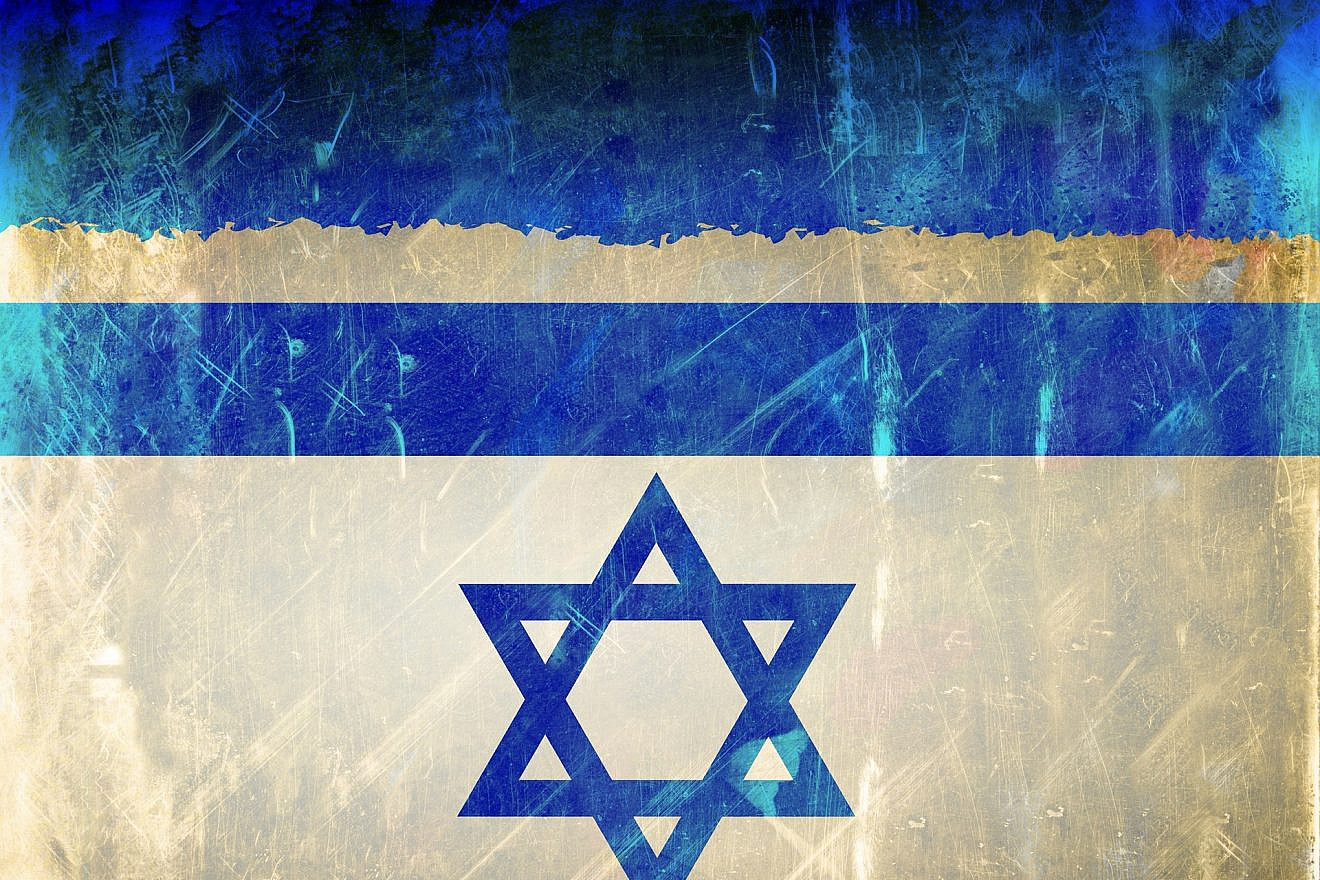When I was debating whether to join a command course in the army, my late grandmother Esther told me, “In Auschwitz, we didn’t volunteer. We always tried to hide in the back.”
This advice was the expression of an extreme life experience, the days of hell in the Auschwitz concentration camp. But it also characterizes Jews throughout the generations, and that feeling of insecurity and instability as part of 2,000 years of persecution with the Holocaust as its most terrible and horrific manifestation. One of the great changes brought about by the establishment of the State of Israel was the opportunity to be a Jew with your head held high. These days, many sense that this feeling is eroding. But a historical perspective shows that we still can and should raise our heads proudly.
In 2024, in this period between Holocaust Remembrance Day (Yom Hashoah) and Israel’s national holidays—Memorial Day (Yom Hazikaron) and Independence Day (Yom Ha’atzmaut), Israel and the Jewish people are in serious crisis. After months of war with Hamas in the Gaza Strip in the south and Hezbollah in Lebanon to the north, and weeks of anti-Israeli and anti-Jewish demonstrations on U.S. campuses and in various cities around the world, the feeling of persecution is hard to shake.
Indeed, recent surveys by the Jewish People Policy Institute (JPPI) reflect this all too well. JPPI’s monthly “Voice of the Jewish People” survey of American Jews found that in April, about 90% of respondents from across the political spectrum (from very liberal to very conservative) reported feeling that “discrimination against Jews has increased.” This follows data from previous surveys showing an increase in the sense of threat they feel as Jews in the United States.
A similar situation is clearly reflected in JPPI’s survey of Israeli society conducted a few days ago. There, for the first time, it was revealed that more Israelis (44%) are not confident in Israel’s victory in the war compared to the 38% who are. It also found an alarming decline in the number of Israeli Jews who are optimistic about the country’s future and their personal future as Israelis. Here in Israel—and there in the world’s largest Jewish community outside Israel—our spirit suffers.
Holocaust Remembrance Day (Yom Hashoah), when we face the absolute human evil directed specifically at the Jewish people, likely intensified these feelings. The narratives of those persecuted in the Holocaust echo in the present. Stories of survivors of the killing machinery of Europe reverberate in the stories of those who survived the Oct. 7 massacre.
The images coming to us from the United States—the place where Jews experienced a flourishing unprecedented in history—recall those from a century ago. Scenes of attacks on Jews and blatantly antisemitic chants remind many of the atmosphere in Germany in the 1930s, which culminated in the most terrible genocide of all. When traces of a horrible past can be found in the challenging present, it is clear why many feel despair.
But it is precisely the depths of the current crisis that require us to broaden our gaze, so that it accommodates both past and future. The blow we suffered on Oct. 7 was cruel and costly, in human life and in damage to Israel’s deterrence and national resilience. But it is very far from triumphing over us.
During the long years of exile and their nadir during the Holocaust, all the Jews could do in the face of violent pogroms was pray for a miracle and cry for help—a cry that mostly went unanswered. On Oct. 7, as soon as the extent of the attack by the Hamas butchers became known, civilians and soldiers headed south and fought back. Within a few hours, the Israel Defense Forces mobilized and within about 24 hours launched its counteroffensive. Although Israel’s image as an unshakeable power has taken a hit, its power and its strength are very much intact and robust. The IDF is still a formidable army. The Israeli economy is still sound. Israelis are still determined and able to defend their homeland. Despite the destruction, which requires thoughtful recovery, our situation remains better than it was across the many years of Jewish history.
The same is true outside Israel. It is true that antisemitism is rearing its head. The number of antisemitic attacks reported in Europe and the United States has exponentially increased in recent months. In several European cities, and unfortunately, also on some of the most prestigious American college campuses, Jews are afraid to display their Jewishness openly. And yet, these are still the exceptional cases that prove the rule. Throughout Europe and certainly in the United States, the Jews are a strong group in every sense, whose rights are recognized—chief among them the right to live in security wherever they are. True, we should be vigilant, and the fight against antisemitism should be determined and uncompromising. And yet, broadly speaking, the situation of Jews in the world is better than ever before.
Between Holocaust Remembrance Day and Israel’s national holidays, we need both resolve and optimism. If we thought that our enemies had given up their desire to expel us from the land, we have discovered once again, the hard way, that they are bloodthirsty and seek to destroy the Jewish state. But despite the darkness of our past, when there was no real Jewish sovereignty, and the challenges of the present, we are a strong people with a strong state. The indomitable Jewish spirit—together with the capabilities we have built—will safeguard our future. In these trying days, it is still possible and appropriate to raise our heads a little, and to take in a brighter horizon.

























